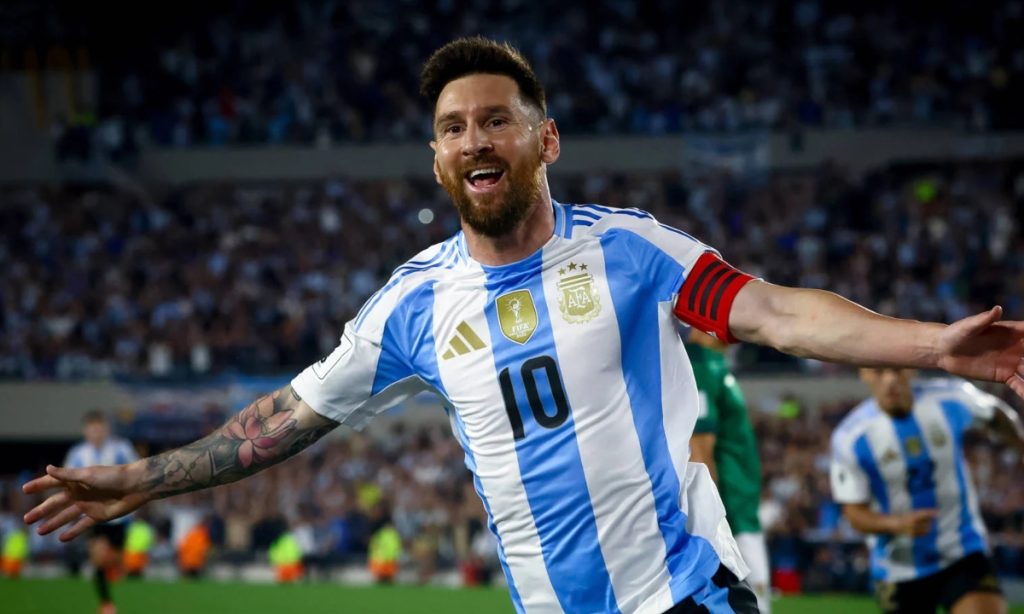In a move that has caught the attention of both sports and finance enthusiasts worldwide, Lionel Messi, renowned for his unparalleled skills on the football field, has made a significant leap into the world of real estate investment. By listing his real estate properties as a Real Estate Investment Trust (REIT) through an Initial Public Offering (IPO) on the Spanish digital markets, Messi has demonstrated a keen eye for business opportunities beyond the realm of sports.
This strategic step was announced on December 31, 2024, valuing his real estate portfolio at an impressive €223 million (approximately $232 million). This valuation reflects not just Messi’s acumen in choosing investments but also his ability to leverage his fame and success in football into other lucrative ventures.
The Messi Real Estate Portfolio
The company behind this venture, Edificio Rostower Socimi, encompasses a diverse range of properties. From seven hotels across Spain and Andorra to commercial real estate dedicated to shops and offices, alongside several residential properties, Messi’s portfolio is both expansive and varied. This diversification not only spreads risk but also taps into different real estate market segments, potentially maximizing returns for investors.
The choice of assets isn’t random; it’s a reflection of Messi’s personal and professional history. Having spent a significant portion of his career in Spain, particularly with FC Barcelona, his investments are heavily concentrated in Catalonia, where he made his mark in football. This connection adds a layer of personal significance to the investment strategy, marrying his life story with his business decisions.
The Strategic Move to REITs
Opting for a REIT structure was a calculated move by Messi. REITs are known for offering investors access to real estate markets with the liquidity of stock investments. By listing Edificio Rostower Socimi as a REIT, Messi has tapped into a tax-efficient investment vehicle that requires distributing a significant portion of its income as dividends, appealing to income-focused investors.
This strategy also comes at a time when the Spanish government attempted to increase taxes on REITs, an initiative that was blocked in parliament, thereby maintaining the favorable tax regime for such trusts. This legislative landscape made the timing of Messi’s move particularly astute, ensuring his venture would benefit from existing tax advantages.
The IPO on Spanish Digital Markets
The decision to list on a digital-only Spanish bourse like the Portfolio Stock Exchange, rather than traditional markets, highlights Messi’s innovative approach to finance. This choice could be attributed to several factors:
Lower Costs: Digital markets often have lower listing and maintenance fees.
Innovation in Investment: It offers a platform that might attract a different demographic of investors, those interested in leveraging technology for investment opportunities.
Control and Flexibility: Digital exchanges might provide more control over how and when shares are traded, especially for entities like Edificio Rostower Socimi, which doesn’t have free float requirements.
The shares were priced at €57.40, setting the stage for a market capitalization of €223 million, signaling strong investor interest in Messi’s venture outside of football.
Market Reaction and Future Prospects
The market’s reaction to Messi’s entry into real estate investment has been overwhelmingly positive, not just due to the fame of its chairman but also because of the strategic nature of the investment. However, the company’s financial records show losses for both 2022 and 2023, which might temper some enthusiasm. Yet, the long-term potential of the assets, combined with Messi’s brand, could offer a compelling case for investors looking at future growth.
The move also opens discussions about the role of high-profile athletes in diversifying their income streams. Messi’s venture could inspire other athletes to look beyond endorsements and traditional investments, exploring complex financial instruments like REITs to build lasting legacies.
Challenges and Considerations
Despite the excitement, there are challenges. Real estate markets carry inherent risks, including market volatility, regulatory changes, and property management issues. Moreover, Messi’s involvement as chairman might attract scrutiny regarding conflict of interest or the influence of his celebrity on investment decisions.
Investors might also ponder whether this is a long-term strategy or a temporary diversification. The performance of Edificio Rostower Socimi in the coming years will be a critical indicator of Messi’s business acumen outside football.
A New Chapter for Lionel Messi
This venture marks a new chapter for Lionel Messi, illustrating his transition from an athlete to a businessman with a global impact. While his legacy in football is secure, his foray into real estate via REITs on Spain’s digital markets could be seen as a testament to his foresight in capitalizing on his fame in new arenas.
As Messi continues to influence the world, not just through sports but through savvy business decisions, his journey from the football field to the financial markets will be watched with keen interest. This move not only diversifies his personal portfolio but also potentially sets a precedent for how athletes can use their influence for broader financial ventures.
Lionel Messi’s listing of his real estate properties as REITs on the Spanish digital markets is more than just a business move; it’s a narrative of growth, adaptation, and the expansion of influence beyond the sports world. Whether this will lead to a successful new venture or serve as a learning curve remains to be seen, but it certainly adds another dimension to the legacy of one of football’s greatest players.

